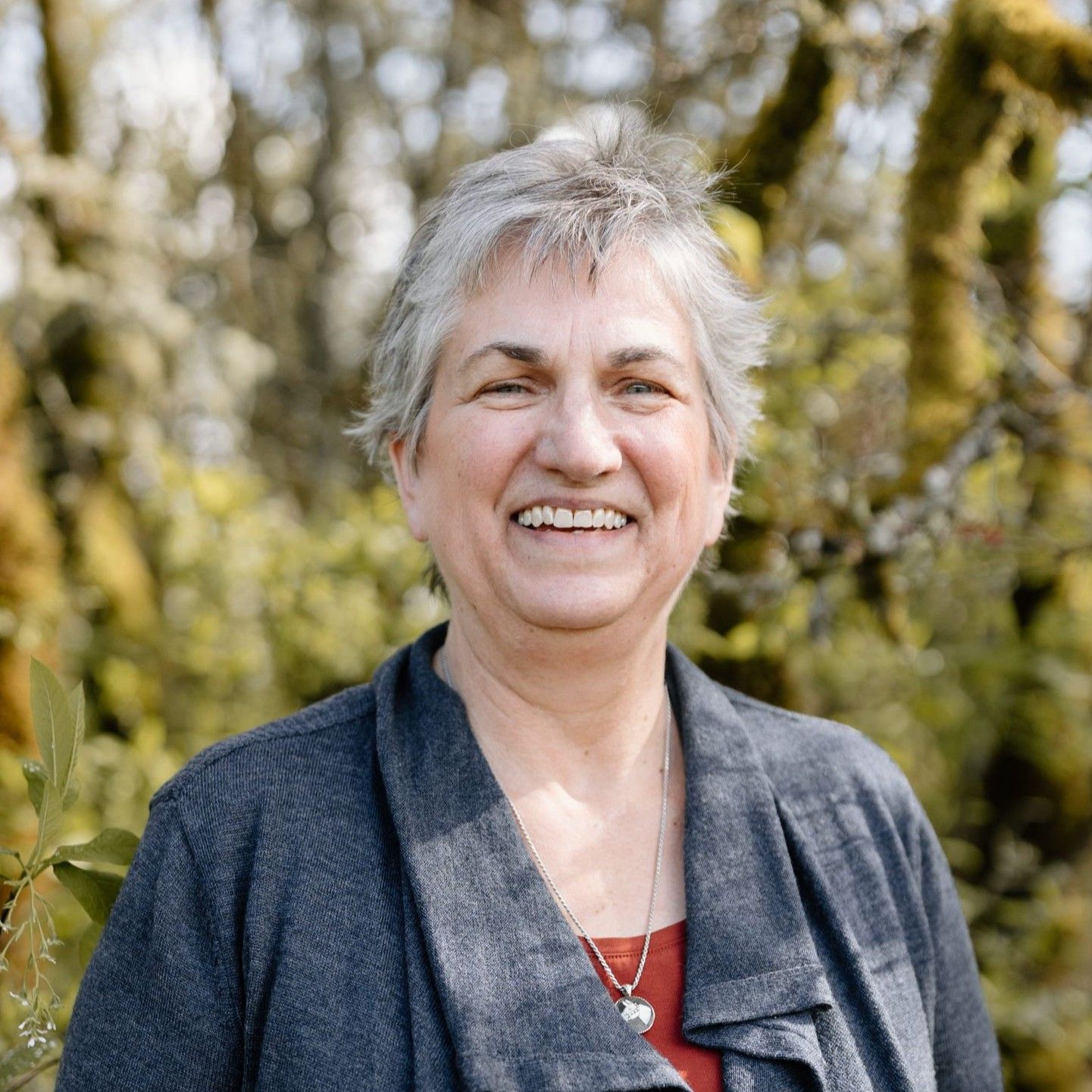Listening with Hospitality
Jun 21
/
Kathi Gatlin

In my recent grief journey, I have discovered many messy emotions in the midst of the experience of losing my father to COVID. I was sitting with a friend the other day and I felt safe enough to open up about my experience and my thoughts and feelings.
Imagine two people sitting around a sandbox, listening together to what one of them was sharing. There isn’t judgment, fixing, putting words in the other’s mouth, or filling the space with their own story. The space to listen is open to whatever comes - neither the listener nor the sharer gets in the way of the listening process. The sandbox is open and available to hold the story well.
This is listening with hospitality. We do not necessarily know how to hold this space for another. We aren’t even aware what gets in the way of hosting such a hospitable space. Yet, we often know when we aren’t receiving this kind of gracious space.
Take a moment and reflect.
Think about a time when you were deeply listened to. How did it feel? If it had a texture, color, or image that represents what it felt like, how would you describe it?
In contrast, remember a time where you knew that the person in front of you couldn’t receive what you were sharing. How did you sense that? How did it feel? Does it have a texture, color, or image that comes to mind when you reflect on it?
As you consider the contrast, what do you notice in these two experiences?
Being able to discern our own safety for vulnerable conversations is helpful in both roles, the sharer and the listener.
So, let’s define a hospitable presence of listening. It is gracious. There is no judgment. There is no fixing. The hard and the painful and the messy belong. For me, I don’t feel like I have to be anywhere or look in anyway different than I am. I feel like the listener has capacity for what I need to share.
Part of this freedom has to do with me. Am I able to hold my messiness, the pain, and the difficult feelings I might need to express?
Part of the freedom is in how I perceive I am received by the listener. Sometimes I feel the response tangibly and true. Other times what I experience from the listener is distorted by my own perception. Often times both of these are true in our ability to show up and host deep conversations. Listening and sharing can be complex with all that both parties bring to the conversation.
A recent example is in processing my own grief journey. This has been a hard journey which has only been complicated by the divisiveness in our nation. Yet on a more personal level the grieving process and the navigation of my father’s estate has been complicated because another family has been involved due to a divorce and remarriage.
Through the years, more often than I actually appreciated, my Dad would tell me how things would go after he died. He explained many times what would happen and what I needed to do. The process was all lined out. But Dad didn’t do all the steps to set everything in place, so it didn’t turn out the way I expected.
My brother and I live at a distance and in our desire to offer space for all involved we lost many of the precious items of our father’s estate. We received some of the minor personal possessions but the ones of financial value that held personal memories for us were kept by the other family who lived much closer.
Many of the items we remember growing up with like Dad’s boyhood oak table, the chairs we refinished together, the coin collection, his tools, and the Kachina doll collection that was promised to my daughter now belongs to a different family than the one we grew up in.
I know these are all “only things.” The memories are always with us. But it is these very things that remind us through the infused memories held in them. Touching these items takes us back to shared memories.
In many ways I feel lost because I expected either my brother or myself would pass them on to our children. At this time the loss almost feels as large as losing my Dad. It wasn’t supposed to be like this. It feels unjust on many levels. I feel anger, disappointment, confusion, and even abandonment in the midst of the sadness of the grief journey. This process is messy.
Sharing my feelings with others has been important. As an external processor, it helps to put my feelings into words and allow them to be received by another. Where I am now isn’t where I will always be, but the healing comes in the sharing and the receiving. I need to express my feelings, as messy as they are, to someone who can listen with me. When another hosts the space for my process, I can move through to greater freedom and wholeness. However, if the space isn’t free, it isn’t healing.
When another shares their journey, it resonates with us, and we want to share our own. We want others to know that we get their story. However, our “getting it” is more often about us and not about the one we are hosting. In my own story, someone else’s journey of losing a parent, may not and probably isn’t, like mine.
Sometimes we are triggered by what we hear. The other’s story takes us back to painful experiences and unhealed places in our own heart. Then we can take up the space with judgment or fixing because we haven’t had the space we needed within our own story. Maybe we are still in our own process of healing.
As we host another, it is important, even essential, to listen to our own inner dialogue to notice what is coming from our inner journey or from the Spirit. What is motivating us to speak or to share? Many times, the motivation comes from our own story instead of for the sake of the one we are with.
In order to offer others the space to process, we need to trust the God in them to walk alongside them on their journey without needing to judge, fix, or manage them. We can allow people to be exactly where they are, knowing that the God who loves them more than they know, is with and for them.
This requires believing in a really big God. Our role as soul companions is to listen with hospitality, which is with openness and requires trusting God to meet each one - those we walk alongside, those we love, and us too. Yes, us too. So, when we notice a resonance or a resistance in our own spirit as we host another, we can take that inner response to someone we trust that can host us well - a spiritual director, supervisor, counselor, or a safe friend.
May we grow to be even better listeners in all the listening conversations we are privileged to engage in.

Kathi Gatlin
Kathi Gatlin co-founded the Companioning Center and founded Boldly Loved to bring together her two greatest passions: spiritual formation and teaching. Walking alongside others in their spiritual journey, whether individually or in groups, brings her immense joy. She loves sharing the contemplative life and exploring ways of understanding God with others. Ultimately, seeing companions grow deeper in their own understanding of who God is and who they are in relationship with God is her faithfulness.
Kathi is a trained spiritual director, supervisor, writer, spiritual formation group facilitator, retreat speaker, leadership mentor, and adjunct professor with George Fox University and Portland Seminary.
Kathi has two grown daughters and five delightful grandchildren. She enjoys coffee, chocolate, deep conversations, reading the mystics, and walking in trees with her Covid puppy, Oliver. http://www.boldlyloved.org

